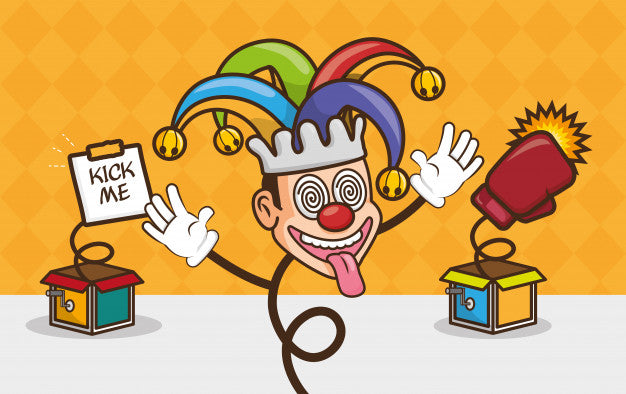April Fools Day History

After all, what other holiday encourages you to think up practical jokes and fool's errands, from swapping your spouse’s keys to tricking your friend into thinking their car got towed? (Not cool, Steve.)
But how did this odd, prank-centric holiday come to be celebrated in the first place, and why is it called April Fools’ Day?
Where did April Fools’ Day come from?
The true origins of April Fools’ Day remain unknown and are probably lost to history, but theories abound, of course.
One story goes that April Fools’ Day began with France’s 1564 Edict of Roussillon, which decreed that New Year’s Day, historically observed on Easter by Christians, was moved to January 1. Easter is a movable, lunar-based date but often falls in April, so it’s said that early adopters dubbed people celebrating the old New Year “April fools.”
Good one, guys.
Another theory suggests that April 1st became the fool’s holiday due to Geoffrey Chaucer’s 14th-century collection, The Canterbury Tales, wherein Chaucer includes a playful reference to “32 March,” or April 1st. However, most scholars consider it to have been a mere copying error.
The holiday also shares some striking similarities to some ancient antecedents, though. The ancient Roman festival, Hilaria, was also a joyful, springtime festival held on or around March 25. Yes, the word hilarious is, aptly enough, related.
Another analog is Holi, a Hindu spring festival celebrated in late March during which people can forgive and forget past faults by throwing colored powder and water on one another.
Is it April Fool’s Day or April Fools’ Day?
Where does the apostrophe go? Originally, there was none! Problem solved.
The term April fool, for a victim of a prank on April Fools’ Day, dates back to the 1600s. Early records of the holiday from the 1700s name it April Fool Day, with an apostrophized April Fools’ Day recorded by the 1800s. This is also around when April fool came to refer to the trick itself.
Today, the holiday is stylized both as April Fool’s Day, emphasizing an April fool as a singular concept, and April Fools’ Day, indicating plural April fools, whether the people or the pranks.
And don’t forget to shout “April Fool!” when the prank is revealed.
April fools across the world
Yup, April Fools’ Day is celebrated all around the world. Because who doesn’t like playing a friendly prank on their loved ones? Here are some examples:
In France, the fooled party is called the poisson d’avril, which literally means “April fish.” France’s customary prank involves pinning a paper fish to a friend’s back.
In Scotland, April Fools’ Day was traditionally called Gowk Day—gowk being another name for the cuckoo, a common symbol of the fool. Pranks continued into April 2, Tailie Day, when celebrants traditionally attach a “paper tail” (or a “kick me” sign) to their friends’ backs.
Brazil celebrates April 1 as Dia da Mentira, or “Lie Day,” in which people try to fool their loved ones. Always for comedic effect, of course.
Source from https://www.dictionary.com/e/fool/



